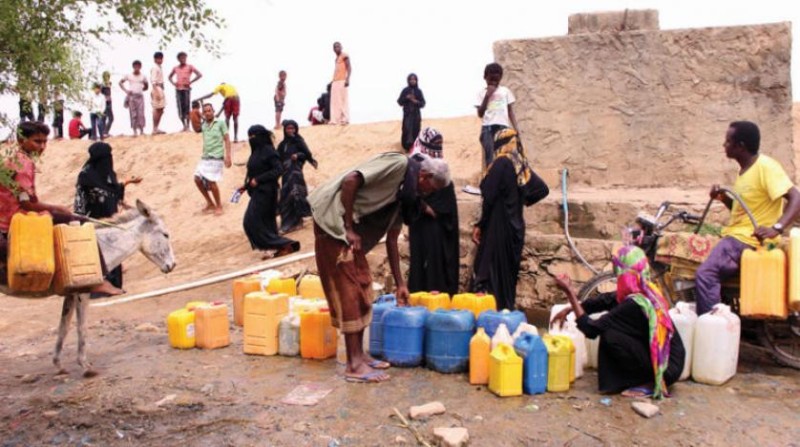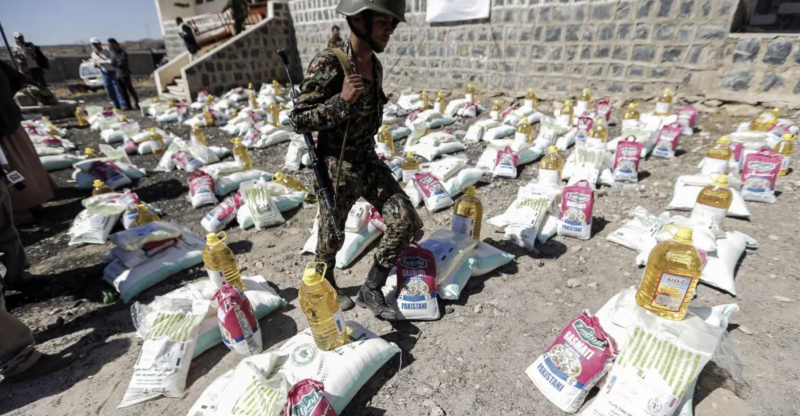Water crises in Yemen deepens.


Yemen, already one of the world's most water-stressed countries, has faced exacerbated water shortages due to the Saudi-led conflict, combined with the effects of climate change.
Critical infrastructure has been damaged by the fighting, while rising temperatures and unpredictable precipitation patterns have further reduced water supply, according to experts and aid groups.
The Food and Agriculture Organization of the United Nations (FAO) states that Yemen's groundwater is being depleted at twice the rate of replenishment, warning that the country could completely run out of groundwater within two decades.
In Yemen, children like 14-year-old Salim Mohammad endure daily struggles to fetch water, walking long distances and waiting in queues, hoping to fill their jerry cans in time for school.
"My arms and my back hurt from the load I carry every day," Mohammad expressed from his family's makeshift apartment in Taez.
"We wake up every morning and race after water," said Mohammad's mother, Umm Mujahid, highlighting the daily struggle for water in Yemen.
In Taez, one of the worst-hit cities, nearly half of the population, or about 14.5 million people, lack access to safe drinking water.
Yemen's piped water network only serves less than 30 percent of the population, forcing millions to rely on private companies or unsafe wells, exacerbating the water crisis.
Children, in particular, bear the brunt of the water scarcity, being forced to assist their families in collecting water instead of attending school, as highlighted by Ralph Wehbe of the International Committee of the Red Cross (ICRC).
The scarcity of water has dire consequences, as demonstrated by incidents like the reported stabbing of a girl over access to a water tank in the capital Sanaa and a fatal accident involving a water truck in Taez.
The crisis extends beyond availability, encompassing poor quality, limited accessibility, and affordability, exacerbating water and food insecurity in Yemen, according to Maha Al-Salehi, a researcher with Yemeni environmental consultancy firm Holm Akhdar.
Even if the conflict were to end, Yemen's water scarcity would persist, indicating that the issue requires long-term solutions beyond the resolution of the conflict, according to Wehbe.

Taiz – Human rights defenders and humanitarian activists have accused community committees in Yemen’s Taiz governorate of involvement i…

Sana'a -- A groundbreaking local investigative report has revealed that the Houthi militia in Yemen has been using chemical substances and narcotic…

Al‑Bayda — Human rights sources revealed that Houthi militias have re‑arrested a Yemeni citizen in Al‑Bayda governorate, central Yemen, after…